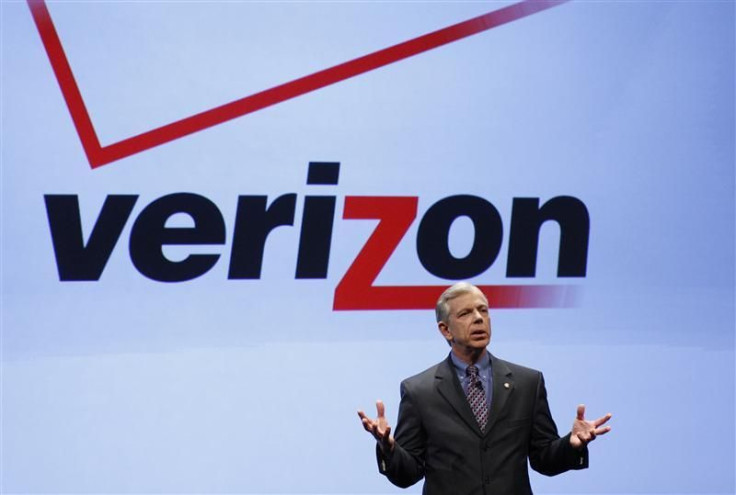Verizon's New Family Plan Simplified: Data Charging Is In; Voice And Text Limits Are Out

As the mobile devices we all carry around in our pockets have become more computers than telephones, the amount of time customers spend actually talking on them has declined.
Verizon Wireless, the biggest name in the business, has grown wise to the trend and recently announced new plans with charges based on the amount of data usage. It's a complex shift that has customers confused and wondering whether the benefits Verizon is advertising are all they're cracked up to be.
Basically, Verizon is instituting the new plans as an incentive for people to connect their smartphones to more devices, increasing the likelihood that customers will spend more money on things they'll be newly connected to. Sales of applications and other downloads will almost certainly rise.
Smartphone sales represent between 60 percent and 70 percent of all phone sales, but only 30 percent of current phone subscriptions are for smartphones, according to a Wall Street Journal video hosted by the Huffington Post. The trend clearly shows that smartphones -- and their associated data usage -- constitute the wave of the future for wireless carriers looking to boost revenue.
The plans Verizon is offering make a direct pitch to families. The new price structure ensures a group of people on the same plan will have their own pool to draw data from, while the texting and voice-calling limitations that customers are used to paying for will be eliminated, in most cases. However, a single customer who doesn't use a family plan will end up having a higher fee on the bill because he or she will be paying more for the data used, according to Reuters.
Customers at Verizon will be able to stick with their current plan, but new customers will be required to sign up for one of the new plans, regardless of whether they are planning to connect their phones to other devices, such as a tablet. Buying unlimited voice and texting services will not be optional. That change was instituted on June 28.
The complexity has been a major turnoff for many Verizon customers, who have taken to online message boards and comment areas to voice their displeasure. It's too early to tell how this will affect Verizon's business, although it's worth noting that multiple sources have written that investors will be pleased because the shared data plans are widely expected to be part of the business model in the future.
There will also be few options for unhappy customers. AT&T is expected to follow with a similar plan, while T-Mobile has expressed its disapproval of this approach, CNet.com reported.
Below is a basic outline of the fees customers will have to pay depending on the device they use and how often they use the data on it, according to CNet.com:
Device Fees
Smartphone: $40
Feature phone: $30
Hotspot, USB stick, netbook, or notebook: $20
Tablet: $10
Data Fees
1GB: $50
2GB: $60
4GB: $70
6GB: $80
8GB: $90
10GB: $100
2GB of more data: $10
Overcharge fee charged for 1GB of data
© Copyright IBTimes 2024. All rights reserved.





















